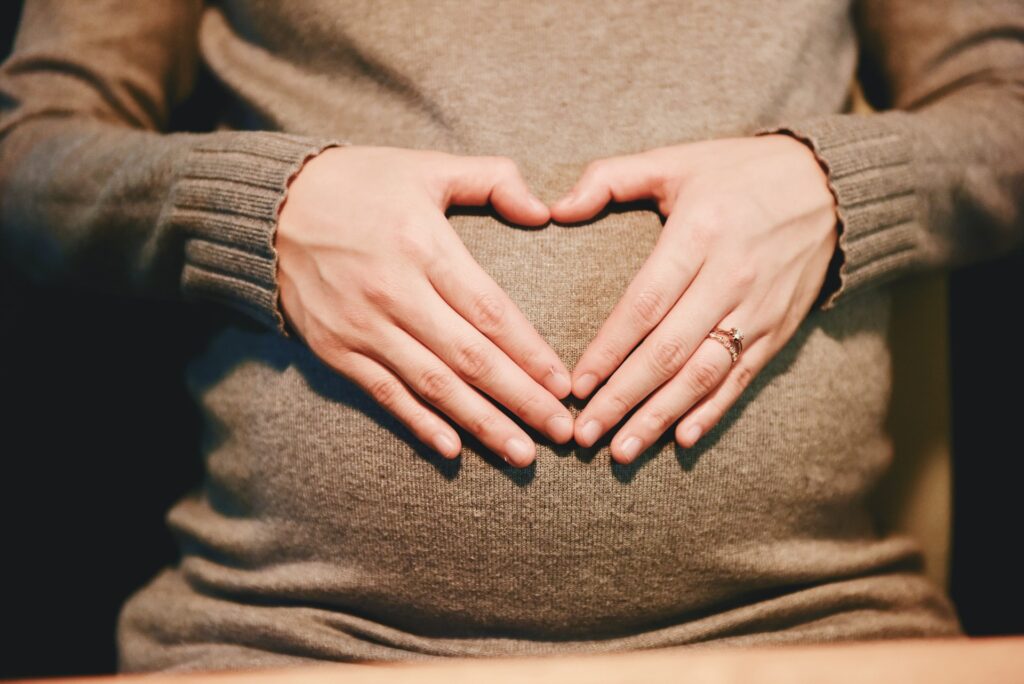Basic symptoms of pregnancy in the first month?
Many early pregnancy symptoms can appear similar to routine premenstrual discomforts.
1. Swelling of the breasts
In the early stages of pregnancy, hormonal changes can cause breast discomfort, making them feel sore, swollen, or heavier. You may also notice more prominent veins in your breasts, a result of increased blood flow to the area.
2.Flatulence
Progesterone can lead to considerable bodily changes by relaxing your muscles, including those in the digestive tract. This relaxation can slow down digestion, resulting in frequent bloating and burping.
 3.Fatigue
3.Fatigue
4.Slight bleeding
Occasionally, a small amount of spotting or light vaginal bleeding can be an early sign of pregnancy, known as implantation bleeding. This occurs when the fertilized egg attaches to the uterine lining, typically between 10 to 14 days after conception. Implantation bleeding is usually lighter in color and shorter in duration than a typical menstrual period and often appears earlier than standard PMS symptoms.
 5.Nausea with or without vomiting
5.Nausea with or without vomiting
Morning sickness, a common pregnancy symptom, can occur at any time of day or night. For some women, nausea may start as early as two weeks into pregnancy.
6.Food aversion or cravings
During pregnancy, you might experience strong aversions to certain foods or intense cravings for others. This shift in dietary preferences is a common part of pregnancy and can vary greatly from one individual to another.
 7.Headaches
7.Headaches
In the early stages of pregnancy, hormonal changes that increase circulation can result in frequent mild headaches. This is a common occurrence as your body adjusts to the new hormonal environment.
8.Constipation
9.Mood swings
At the start of pregnancy, hormonal fluctuations can lead to increased emotional sensitivity and frequent crying. Mood swings are a common symptom, particularly during the first trimester.
10.Weakness and dizziness
In early pregnancy, expanding blood vessels and a drop in blood pressure can cause dizziness. Additionally, low blood sugar levels may lead to fainting spells during this time.
 11.PMS absence
11.PMS absence
One of the most noticeable early signs of pregnancy is a missed period. If your menstrual cycle is late or absent, it is often an indicator of pregnancy.
12.Bleeding gums or nose
Hormonal changes during pregnancy can make your gums more prone to inflammation and bleeding, a condition known as pregnancy gingivitis or gum disease. Increased hormone levels can cause your gums to become swollen and bleed when brushed or flossed. Additionally, the expansion of blood vessels in the nose during pregnancy can increase the likelihood of nosebleeds.







